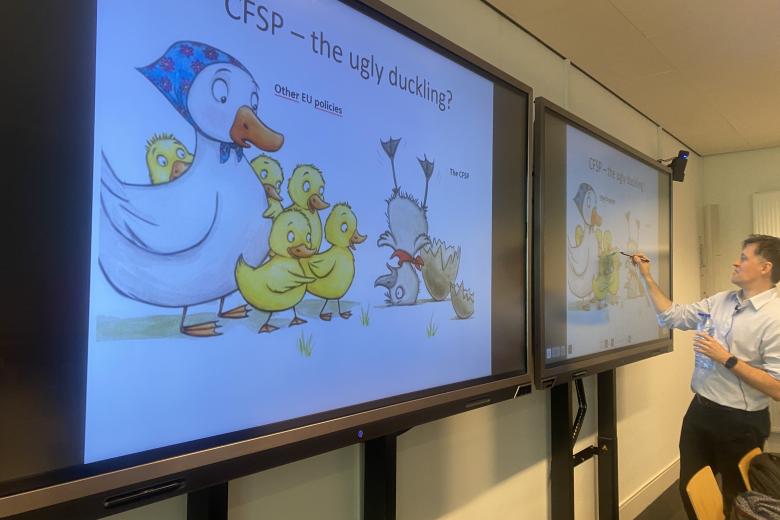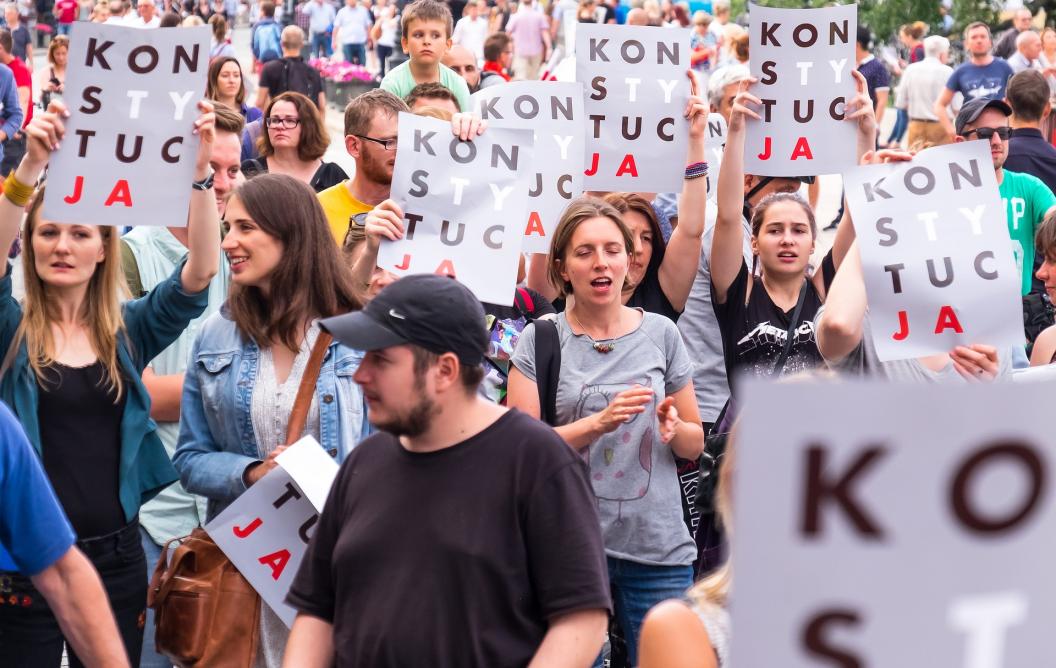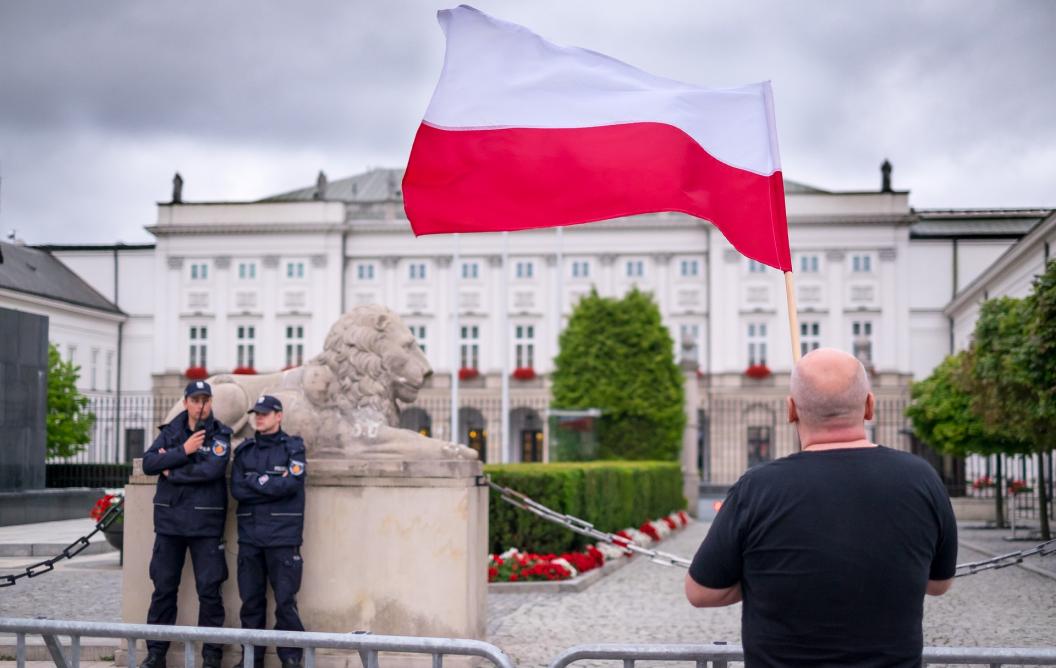Partial independence doesn’t exist: how will the EU get on with Poland?
The European rule of law is under siege in Poland. On October 7th, 2021, the Polish Constitutional Tribunal declared that the Polish Constitution is more important than any EU treaty. The rest of Europe is keeping a close eye on the situation; how is it going to develop? Is there any chance that the sovereignty of European law will be restored? And how did we get here? It’s a complicated tale comprising not just legality but also the broader political atmosphere.
The Polish rule of law
All member states of the European Union treat the implementation of European law differently. The European Union sets minimum standards a member state must adhere to, but organizing legal bodies and courts is done on a national level. Kees Sterk, endowed chair and professor of public law, sees trouble brewing in Poland: “Just like the Netherlands, Poland has its constitution. On paper, they accept European law into this system; in practice, the Constitutional Tribunal is subjected to political influence.” The Polish Constitutional Tribunal’s decision is a prime example of this political influence. Through this decision, Poland is rejecting the rulings of the European Court of Justice.
The conservative nationalist party Law and Justice (PiS) won the Polish elections in 2015. Since then, it has made drastic reforms that threaten the independence of the Polish rule of law. Matteo Bonelli, who is an assistant professor specializing in institutional, constitutional, and fundamental rights law, sees a twofold decline taking place: “PiS is currently taking over the judicial system by reforming it and appointing judges. Additionally, Poland has placed democracy above the rule of law: judges are pressured when they review policies.”
Also read
-
DigiMach places Meuse-Rhine Euroregion at the heart of industrial digitalisation
DigiMach (Digital Machining) is a new cross-border project uniting Belgium, Germany, and the Netherlands around a common goal: accelerating the digitalisation of the machining industry in the Meuse-Rhine Euroregion.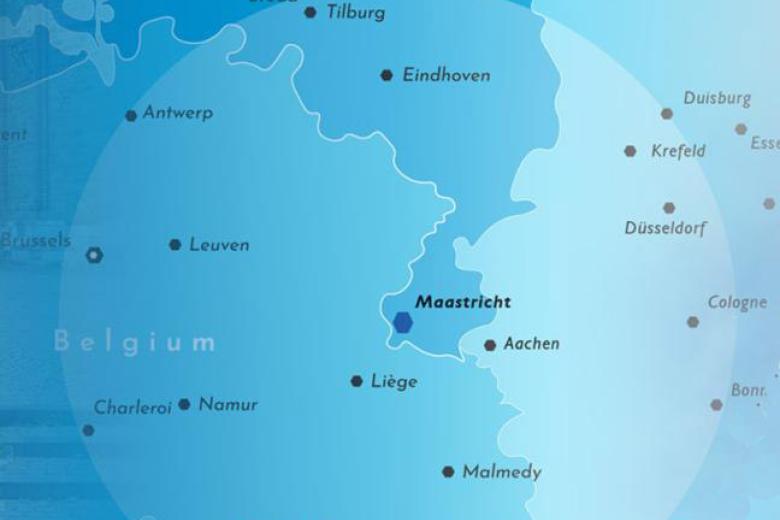
-
Globalisation & Law Network seminar with Áine Ryall
On 24 November 2025, the Globalisation & Law Network, together with the Institute for Globalisation and International Regulation (IGIR) held the seminar with Professor Áine Ryall.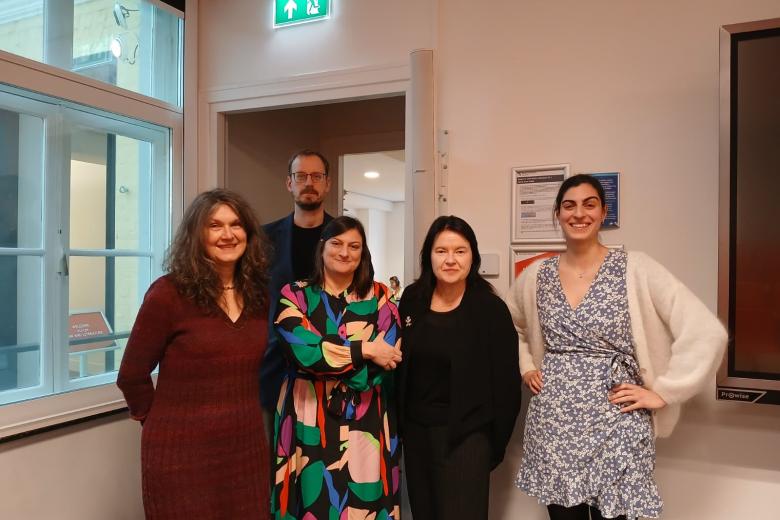
-
Guest Lecture: Lóránt Havas explores current challenges in the EU’s CFSP
Lóránt Havas delivered a guest lecture on the EU’s evolving CFSP, discussing key legal developments, institutional challenges, and new defence instruments.